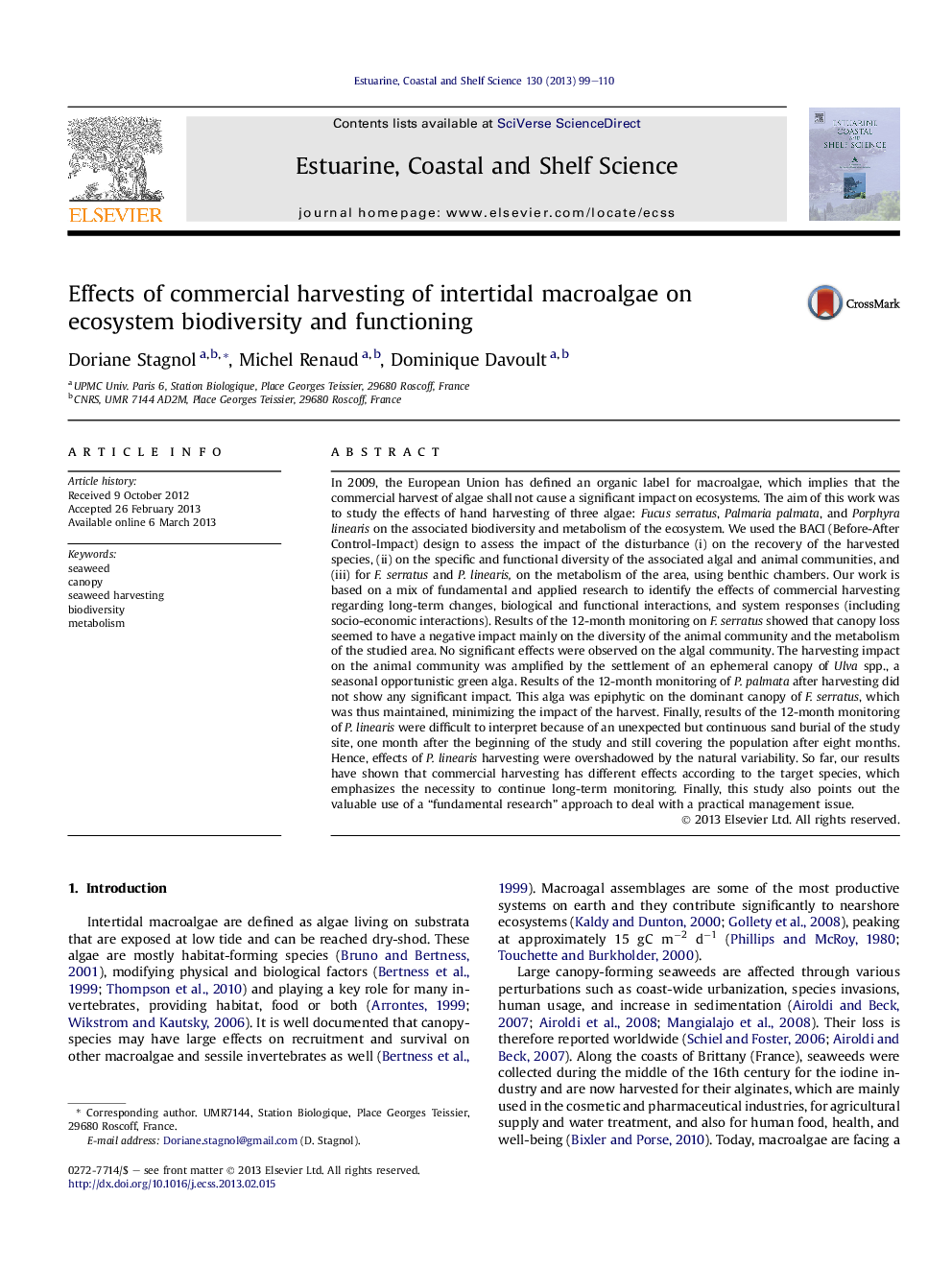| Article ID | Journal | Published Year | Pages | File Type |
|---|---|---|---|---|
| 4539823 | Estuarine, Coastal and Shelf Science | 2013 | 12 Pages |
In 2009, the European Union has defined an organic label for macroalgae, which implies that the commercial harvest of algae shall not cause a significant impact on ecosystems. The aim of this work was to study the effects of hand harvesting of three algae: Fucus serratus, Palmaria palmata, and Porphyra linearis on the associated biodiversity and metabolism of the ecosystem. We used the BACI (Before-After Control-Impact) design to assess the impact of the disturbance (i) on the recovery of the harvested species, (ii) on the specific and functional diversity of the associated algal and animal communities, and (iii) for F. serratus and P. linearis, on the metabolism of the area, using benthic chambers. Our work is based on a mix of fundamental and applied research to identify the effects of commercial harvesting regarding long-term changes, biological and functional interactions, and system responses (including socio-economic interactions). Results of the 12-month monitoring on F. serratus showed that canopy loss seemed to have a negative impact mainly on the diversity of the animal community and the metabolism of the studied area. No significant effects were observed on the algal community. The harvesting impact on the animal community was amplified by the settlement of an ephemeral canopy of Ulva spp., a seasonal opportunistic green alga. Results of the 12-month monitoring of P. palmata after harvesting did not show any significant impact. This alga was epiphytic on the dominant canopy of F. serratus, which was thus maintained, minimizing the impact of the harvest. Finally, results of the 12-month monitoring of P. linearis were difficult to interpret because of an unexpected but continuous sand burial of the study site, one month after the beginning of the study and still covering the population after eight months. Hence, effects of P. linearis harvesting were overshadowed by the natural variability. So far, our results have shown that commercial harvesting has different effects according to the target species, which emphasizes the necessity to continue long-term monitoring. Finally, this study also points out the valuable use of a “fundamental research” approach to deal with a practical management issue.
